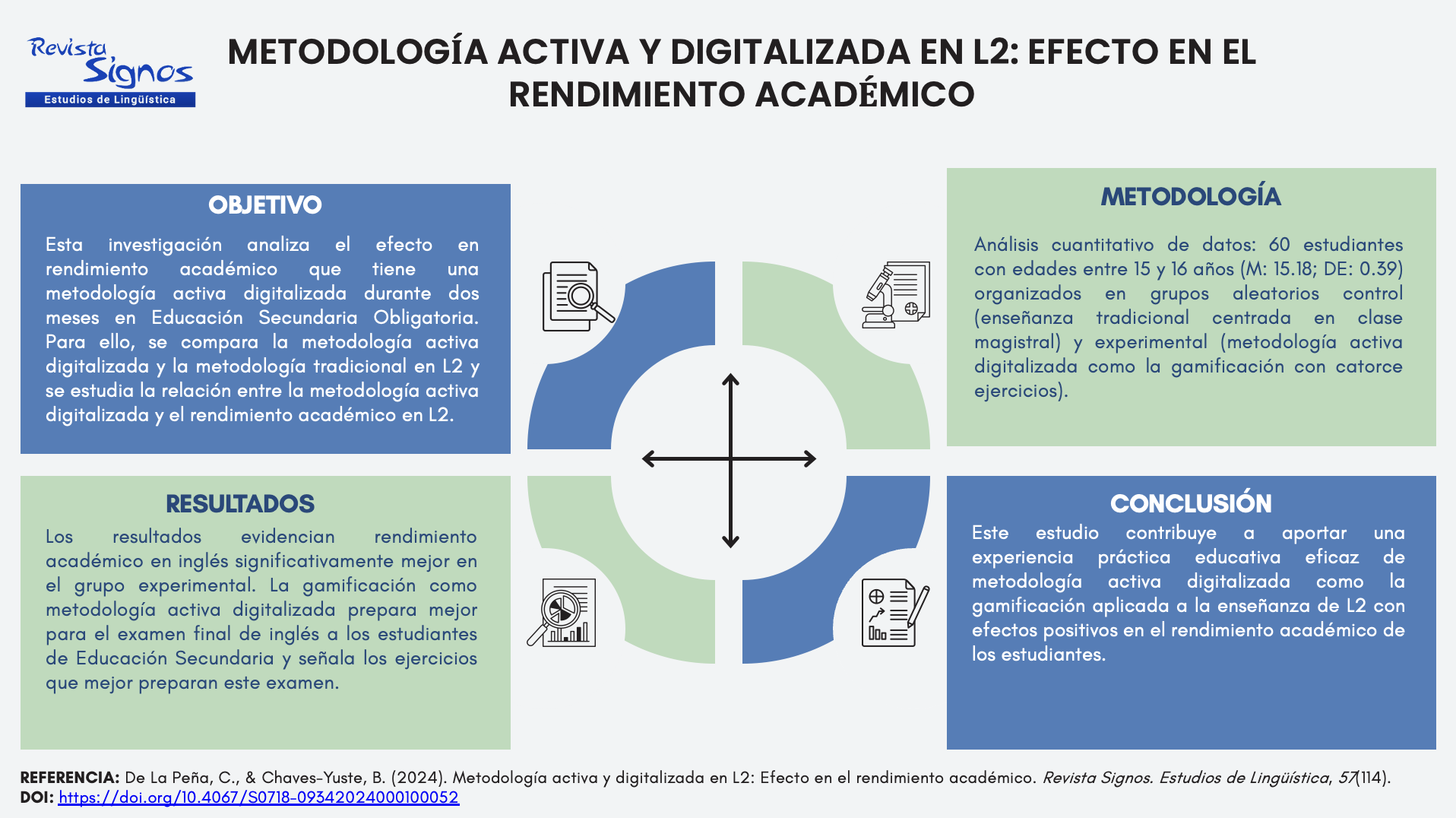Active Learning and Digitalized Methodology in L2
Effect in Academic Results
Keywords:
active learning methodology, gamification, linguistic competence, English, academic resultsAbstract
Teaching English as a Foreign Language (EFL) is constantly searching for the most successful learning method. Using active learning methodologies and ICT tools in educational contexts entails some changes in the teaching-learning process. This research work analyzes the effect of academic performance with a digitalized active learning methodology applied during two months in the compulsory secondary education stage. The sample of the study is composed of sixty students aged between 15 and 16 years old (M: 15.18; DE: 0.39) from an educational institution in Madrid (Spain) who have been randomly assigned into a control and an experimental group. The control group is instructed following a traditional teaching with teacher-centered lectures whereas the experimental group follows a digitalized active learning methodology (gamification). The results in the final test show a significantly higher academic performance in the experimental group. This finding indicates that the use of a digitalized active learning methodology such as gamification prepares secondary education students better for the final exam. This exploratory study proposes an L2 teaching methodology with a positive effect on the learning process and academic performance which can be applicable to other school grades.

Published
How to Cite
Issue
Section
License
Copyright (c) 2024 Revista Signos. Estudios de Lingüística

This work is licensed under a Creative Commons Attribution 4.0 International License.
Copyright agreement:
Authors who have a manuscript accepted for publication in this journal agree to the following terms:
Authors will retain their copyright and grant the journal the right of first publication of their work by means of this copyright agreement document, which is subject to the Creative Commons Acknowledgment License that allows third parties to share the work provided that its author and first publication in this journal are indicated.
Authors may adopt other non-exclusive license agreements for distribution of the published version of the work (e.g., depositing it in an institutional repository or publishing it in a monographic volume) as long as the initial publication in this journal is indicated.
Authors are allowed and encouraged to disseminate their work via the internet (e.g., in institutional publications or on their website) before and during the submission process, which can lead to interesting exchanges and increase citations of the published work (read more here).


